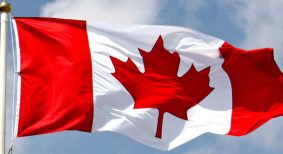Plastics recycling has evolved significantly over the past several years with the advancement of technology. From used packaging to bottles, plastics can enhance our economy and environment.
Here, Krista Friesen, vice-president of sustainability at the Canadian Plastics Industry Association (CPIA), provides some updates on what can be recycled and where, and shares the surprising ways plastics can be reincarnated. A major part of the CPIA’s mandate is its post-use resource recovery program, which focuses on increasing the types and volumes of plastics that are diverted from landfills through recycling and energy recovery efforts.
Are there any surprising forms plastics take after the recycling process?
Used packaging isn’t only recycled into new packaging. Meanwhile, bottles have an interesting new life cycle. While used plastic packaging is sometimes recycled to make new packaging, this isn’t always the case. Used plastic juice jugs, for example, are often recycled into playground equipment, patio furniture, cooking tools and more. Plastic yogurt containers can become reusable food storage containers, area rugs, tableware, and other cool products. Today, many clothing designers use fabrics made from recycled plastic bottles to make a variety of clothing, from fancy dresses and comfortable T-shirts to rugged fleece jackets and board shorts. The bottles are cleaned, shredded, heated and then stretched into fine threads that are woven into soft, durable fabrics. These recycled fabrics can be manufactured with different weights and textures to provide a range of design options.
What about the caps and lids of bottles and containers?
Unfortunately, it is not commonly known that caps and lids are as recyclable and valuable as the bottles and containers themselves, and these materials often end up in the garbage of offices, businesses and retail spaces. So, don’t throw your soft drink bottle caps in the trashcan or your margarine tub lids, either. They’re not trash. Bottle caps and container lids are made with valuable plastics, and recyclers want them too. Check with your municipality or local recycling program for their guidelines around caps and lids – many encourage you to simply put caps and lids back on bottles and containers and toss them in the recycling bin together, while others may ask that the caps and lids are included separately. Recyclers typically shred them all into flakes and then submerge the flakes in water. Bottle flakes sink and the other flakes float, making it easy to separate the plastics for recycling. Optical scanners and other technologies can help too.
How can the commercial sector better manage plastic bags and wraps they generate?
Plastic bags and wraps are highly recyclable and can be recycled at many locations. If your business generates a large enough quantity of flexible plastic, it is worth speaking to your waste hauler or property manager about adding that plastic to the existing recycling programs. In 2014, CPIA initiated a pilot project with a mall management firm to establish an education and collection program for its retail tenants, and we are currently working with grocery retailers to determine opportunities for additional diversion of their commercially generated plastic packaging. For smaller quantities, it’s easier than ever to recycle dry cleaning bags, food wraps, food storage bags, grocery store bags, product wraps, and more. Clean and dry bags and wraps are collected for recycling across Canada at various retail locations as well as through some curbside and depot programs run by municipalities. Manufacturers turn these plastics into new bags and other products—in fact, a used plastic bag could become part of your new backyard deck.
Krista Friesen is the vice-president of sustainability at the CPIA. She currently leads CPIA’s efforts in post-use resource recovery, one of the association’s core areas of focus.CPIA is committed to increasing the diversion of plastic packaging from landfills across Canada. If you, or your company, would like additional information about adding more plastic to your recycling program, visit plastics.ca or contact Krista at kfriesen@plastics.ca or 905-678-7748 x234.






